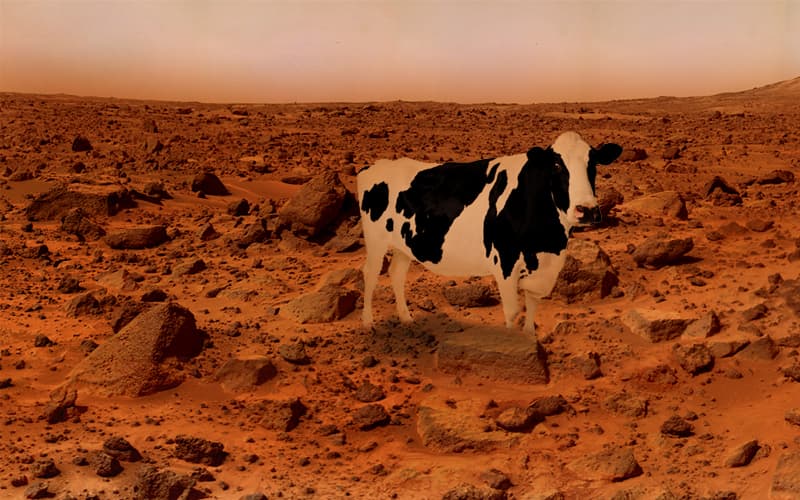Obviously there are no cows on Mars but NASA’s Mars Curiosity Rover detected an increase of methane in the atmosphere and organic molecules from the soil during one of its drilling sessions.
The findings were presented at the American Geophysical Union meeting in San Francisco. Curiosity data shows spikes of Methane, ten times over the average Martian values, which has lead scientist to speculate its origin. While the organic molecules are most likely ancient, the methane was localised and it was most likely of recent origin.
On Earth methane is produced mostly by living organisms (in Britain 25-30% of methane is produced by cows), but several mineral decompositions can be responsible for this. So, if this is not evidence for life why is it important? Well, for a few reasons.
We have very limited understanding of Martian geochemistry and this is an important step into knowing more about the red planet. The discovery is quite unexpected on the assumption that Mars is sterile, making these findings unique from a geological point of view.
Even if the current Mars conditions are not favourable to us, the presence of these chemicals make the possibility of ancient life much more likely.
Curiosity is one of the most inspiring and high-reaching experiments we are currently performing, and we are a significant step closer to answering David Bowie and knowing for sure if there is life on Mars.

